The error you are referring to appears in all versions of Xcode, seeing as it is not Xcode that is the source of the warning, but the programmer; and, it is not Xcode that generates the warning, it is the GCC compiler it uses to debug your code that is responsible for identifying the potential issue the warning raises.
While it may be that rewriting the expression will resolve the error, you do not have to do that in this case (or, technically, any other case like this). You can leave it as is.
The answer is to add sequence (or order) to the modification of the variable (i.e., to the assignment of a new value) and to its expression (i.e., to the return of its new value), and that only takes a few extra characters to achieve, namely, a pair of braces ensconced in parentheses and a semicolon (see Statements and Declarations in Expressions).
double NSBKeyframeAnimationFunctionEaseInQuad(double t,double b, double c, double d)
{
return c*({(t/=d);})*t + b;
}
Here are before-and-after screenshots that demonstrate the solution:



